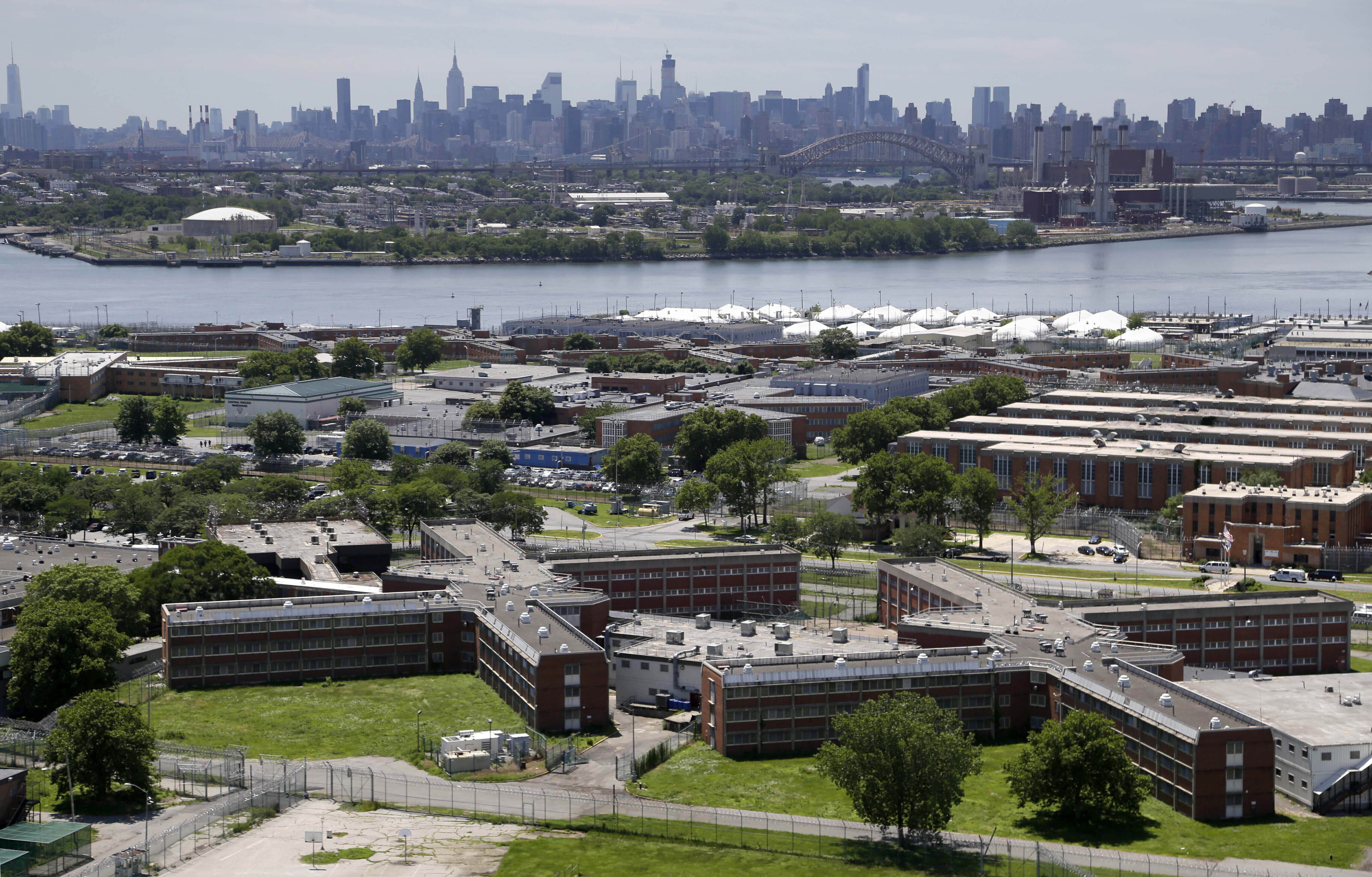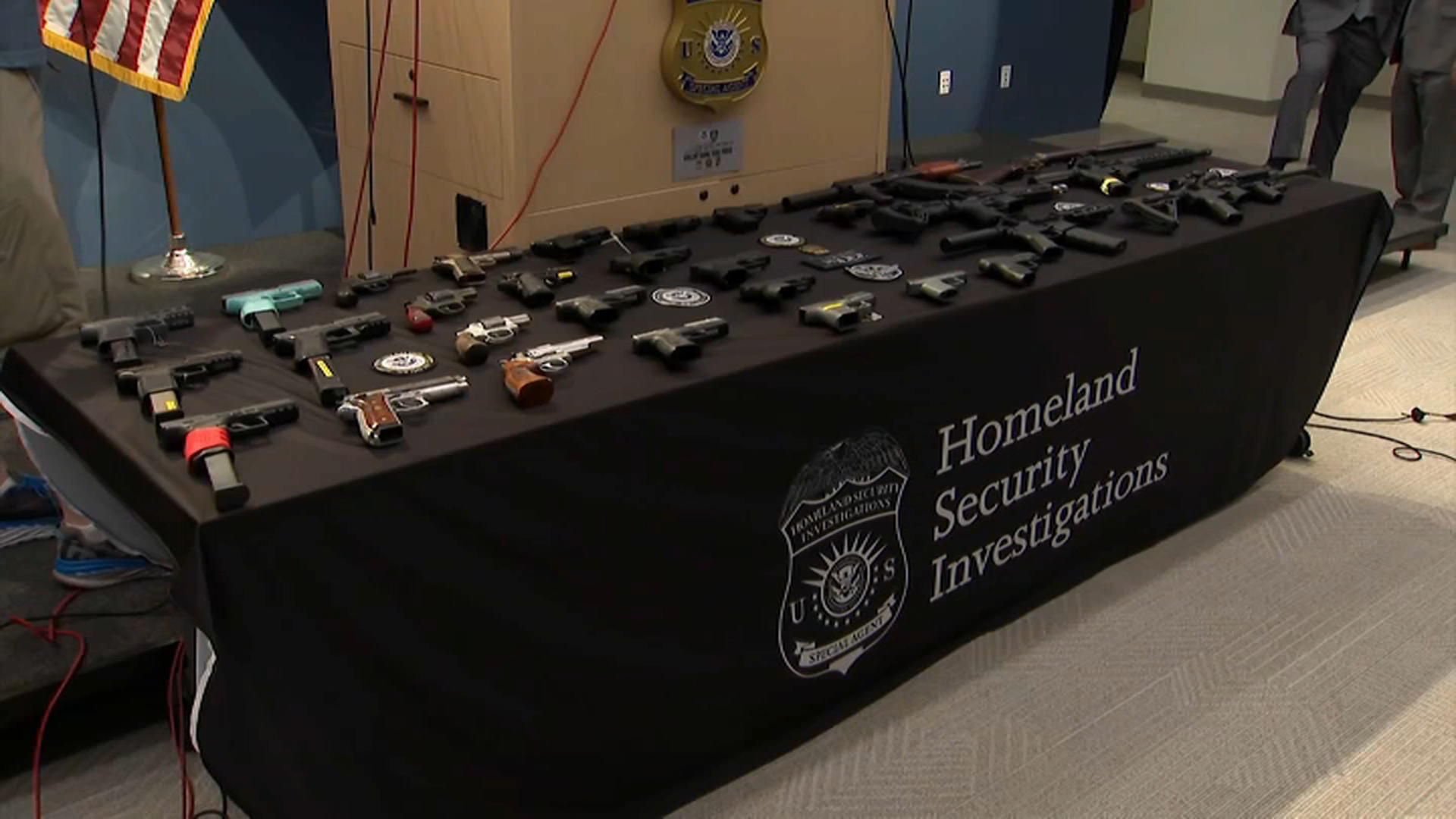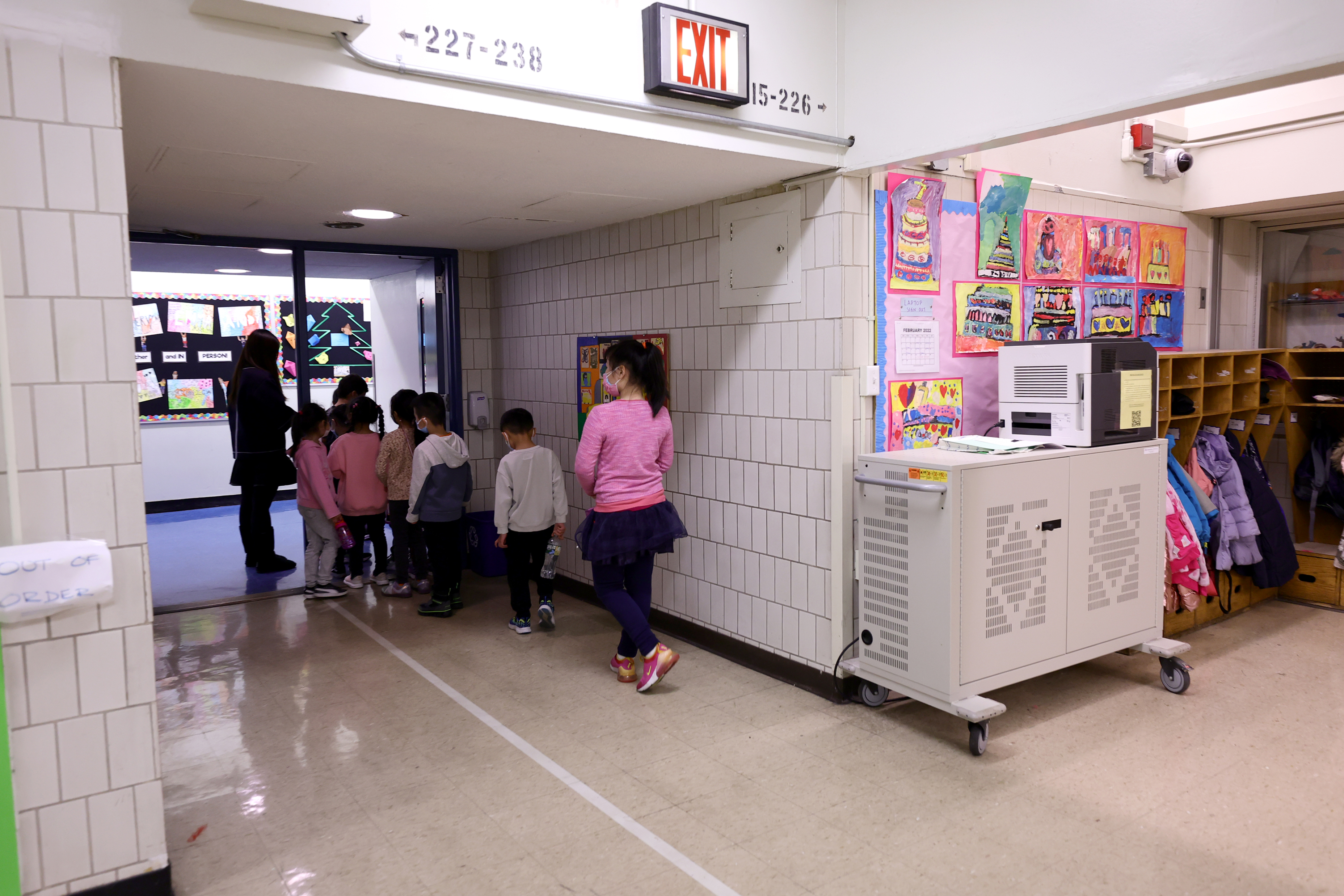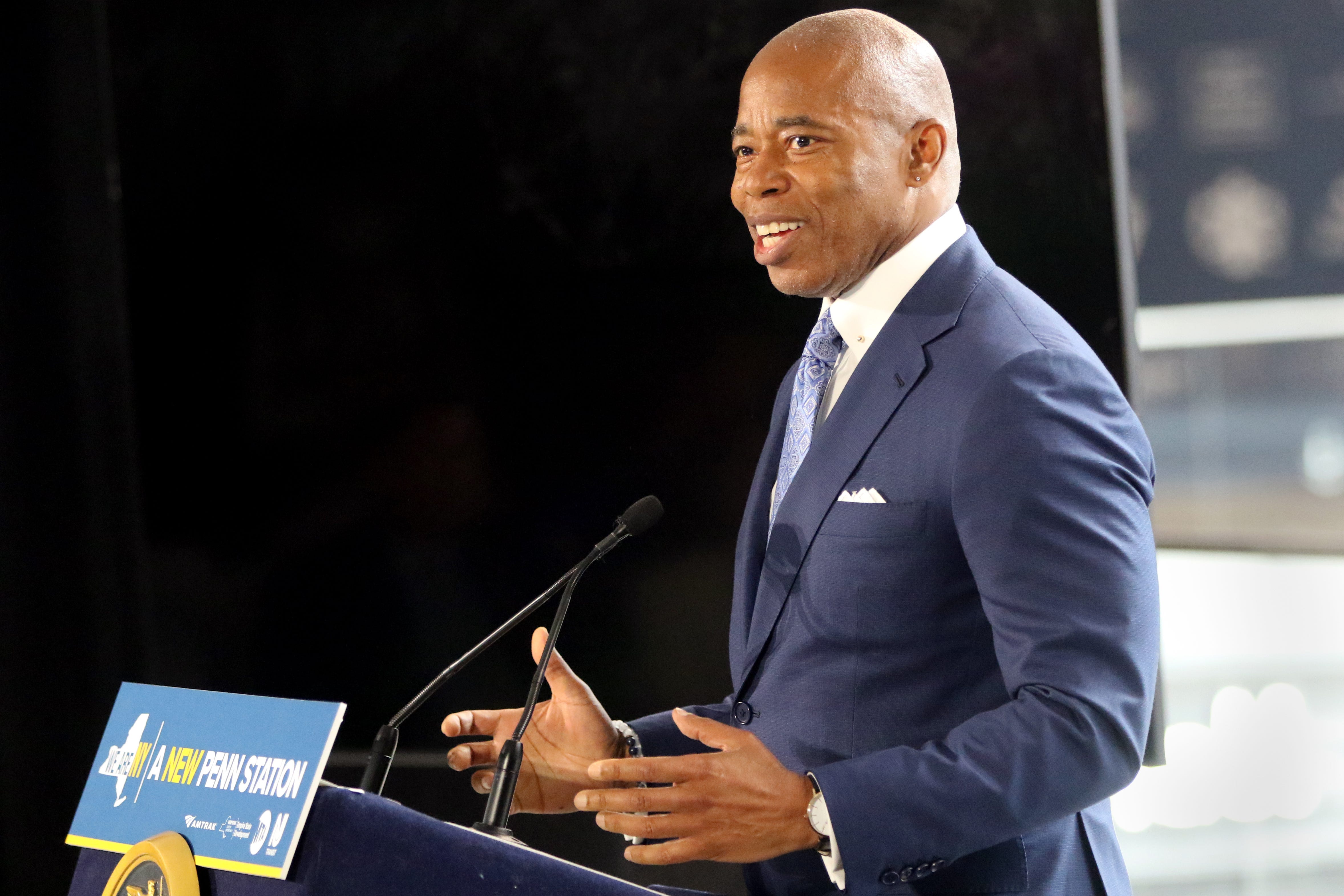ICE Blocked at Rikers: Judge Halts Adams' Plan!
Rikers Island ICE Block: Judge Halts Adams' Controversial Plan
Introduction: A Battle Over Immigration Policy at Rikers
The situation at Rikers Island just took a dramatic turn. A New York judge has thrown a wrench into Mayor Eric Adams' plan to allow federal immigration agents to operate within the infamous jail complex. This isn't just a minor setback; it's a temporary injunction, a pause button pressed on a policy that has sparked intense controversy and legal challenges. What does this mean for the future of immigration enforcement in New York City, and why is this plan so contentious?
Judge Rosado's Order: A Temporary Victory for Opponents
Judge Mary Rosado's written order on Monday served as a clear message: slow down. She barred the city from proceeding with any negotiations, signings, or implementation of a Memorandum of Understanding (MOU) with the federal government until a hearing scheduled for April 25. This hearing will be the stage for a full-fledged legal showdown, with the New York City Council leading the charge against the mayor's executive order.
The NYC Council Lawsuit: Accusations of a "Corrupt Quid Pro Quo"
The heart of the opposition lies in a lawsuit filed by the New York City Council. They accuse Mayor Adams of engaging in a "corrupt quid pro quo bargain" with the Trump administration. The allegation? That Adams traded favors to get the Justice Department to drop criminal charges against him. This is heavy stuff, and Adams has vehemently denied any wrongdoing.
Understanding the "Quid Pro Quo" Allegation
Think of it like this: Imagine you're negotiating a deal, and one party offers something seemingly unrelated to the main issue in exchange for a favor. That's essentially the allegation here – a swap of political influence for legal leniency. The City Council believes that Adams' decision to welcome ICE agents into Rikers is a direct result of this alleged deal. Whether there's truth to it or not, it's a serious accusation that fuels the controversy.
Mayor Adams' Defense: Repeated Denials and Justifications
Mayor Adams has consistently denied the accusations leveled against him. He argues that his decision is based on a commitment to public safety and a desire to cooperate with federal law enforcement agencies. He claims that having ICE agents on-site at Rikers will help identify and deport individuals who pose a threat to the community. But is it that simple?
The Controversial Executive Order: A Deep Dive
Adams' executive order is the document that triggered this whole legal battle. It allows U.S. Immigration and Customs Enforcement (ICE) and other federal agencies to establish office space within the Rikers Island jail complex. This isn't just about providing a desk and a phone; it's about giving ICE a foothold within the city's detention system, potentially facilitating more deportations.
What Does the Executive Order Actually Say?
While the specific details of the executive order might be dense legal jargon, the core idea is clear: it grants federal agencies greater access to Rikers Island and its inmate population. This access could include interviewing inmates, accessing records, and coordinating deportation proceedings. It's a significant shift in policy that raises serious concerns about due process and the rights of detainees.
The Hearing on April 25: What to Expect
The upcoming hearing on April 25 will be a crucial moment. Judge Rosado will hear arguments from both sides – the City Council arguing for a permanent injunction and the Adams administration defending its executive order. The outcome of this hearing will determine whether ICE agents will be allowed to operate at Rikers Island in the long term.
Potential Outcomes of the Hearing
- Permanent Injunction: If Judge Rosado sides with the City Council, the executive order will be permanently blocked, preventing ICE agents from operating at Rikers.
- Dismissal of the Lawsuit: If Judge Rosado sides with Mayor Adams, the lawsuit will be dismissed, and the executive order will likely go into effect.
- Modification of the Executive Order: Judge Rosado could also order modifications to the executive order, placing restrictions on ICE's activities at Rikers.
Impact on Detainees: Fear and Uncertainty
The uncertainty surrounding this policy is undoubtedly causing fear and anxiety among detainees at Rikers Island. Many inmates may be undocumented immigrants who are already vulnerable and fear deportation. The presence of ICE agents within the jail complex could create a climate of fear and distrust, making it even harder for inmates to access legal representation and other resources.
Civil Rights Concerns: Due Process and Equal Protection
Critics argue that allowing ICE agents to operate at Rikers Island raises serious civil rights concerns. They argue that it could lead to racial profiling and the targeting of immigrant communities. They also question whether detainees will have adequate access to due process and legal representation before being subjected to deportation proceedings.
The History of ICE at Rikers: A Fraught Relationship
This isn't the first time ICE's presence at Rikers Island has been a point of contention. Previous administrations have also grappled with the issue, often facing pressure from immigrant rights advocates and elected officials. The relationship between the city and ICE has always been fraught with tension, reflecting the broader debate over immigration policy in the United States.
The "Sanctuary City" Debate
New York City has long been considered a "sanctuary city," meaning it has policies in place to limit cooperation with federal immigration enforcement. This latest move by Mayor Adams seems to be a departure from that tradition, sparking debate about the city's commitment to protecting its immigrant communities. Is this a sign that New York City is moving away from its sanctuary status?
Public Opinion: A Divided City
Public opinion on this issue is sharply divided. Some support Mayor Adams' plan, arguing that it's necessary to protect public safety and enforce immigration laws. Others vehemently oppose it, arguing that it's a violation of civil rights and a betrayal of the city's values. This division reflects the broader national debate over immigration, making it a particularly sensitive issue in a diverse city like New York.
The Bigger Picture: National Immigration Policy
The situation at Rikers Island is just one piece of a larger puzzle. It reflects the ongoing debate over immigration policy in the United States. From border security to deportation policies, the issue of immigration continues to be a major source of political division and social unrest. Understanding this context is crucial to understanding the significance of the current dispute in New York City.
Conclusion: A Policy in Limbo
For now, Mayor Adams' plan to allow ICE agents to operate at Rikers Island is on hold. Judge Rosado's temporary injunction provides a brief respite for opponents, but the battle is far from over. The upcoming hearing on April 25 will be a pivotal moment, determining the future of immigration enforcement at Rikers and potentially reshaping the city's relationship with ICE. The city remains divided, and the fate of countless detainees hangs in the balance. Ultimately, this case highlights the complex intersection of immigration policy, civil rights, and local politics.
Frequently Asked Questions
Here are some frequently asked questions about the situation:
- What is Rikers Island?
Rikers Island is New York City's main jail complex, housing thousands of inmates awaiting trial or serving short sentences. - What is ICE?
ICE stands for U.S. Immigration and Customs Enforcement, a federal agency responsible for enforcing immigration laws within the United States. - What is a "sanctuary city"?
A "sanctuary city" is a city that has policies in place to limit cooperation with federal immigration enforcement. - What does the City Council allege against Mayor Adams?
The City Council accuses Mayor Adams of engaging in a "corrupt quid pro quo bargain" with the Trump administration in exchange for the Justice Department dropping criminal charges against him. - What happens next?
A hearing will be held on April 25 where Judge Rosado will hear arguments from both sides and determine whether to grant a permanent injunction against Mayor Adams' executive order.






